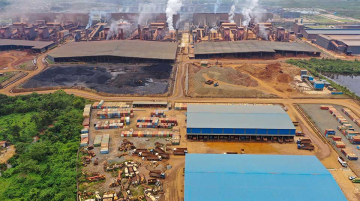Since the 2010s, China has moved swiftly to secure mineral resources around the world to feed its gigantic electric vehicle (EV) battery manufacturing industry. In the Democratic Republic of the Congo, China was reported to own 15 of the 17 cobalt operations in the country, producing tons of refined cobalt, a crucial ingredient for EV batteries.
In Southeast Asia, two countries in particular, Indonesia and the Philippines, are emerging as the key mining hubs for Chinese companies which now have large operations to extract and process the minerals and metals needed to manufacture batteries used to power electric vehicles.








